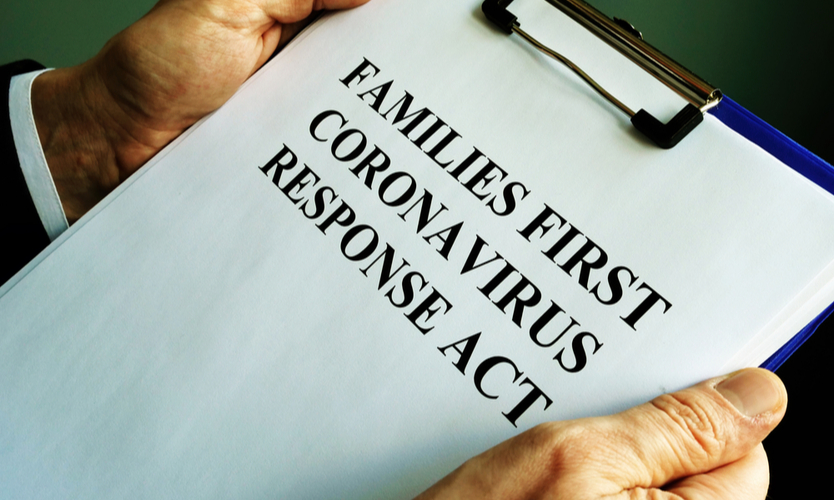Employers may extend FFCRA, but mandate ends: Experts
Reprints
The Families First Coronavirus Response Act will expire at year end as scheduled, but employers may voluntarily choose to extend it through the first quarter, experts now say.
This is their interpretation of FFCRA provisions in the $900 billion coronavirus relief bill that was approved by the U.S. Senate on Monday, based on language in the more than 5,000-page legislation.
A somewhat cryptic reference to the program in a statement issued Sunday by House Speaker Nancy Pelosi, D-California, and Senate Democratic Leader Chuck Schumer, D-New York, when the bill’s text was not yet available, left this initially unclear.
The FFCRA, which took effect April 1, required employers to give employees paid emergency family and medical leave and emergency paid sick leave. It covers private employers with fewer than 500 employees and certain public employers. Employers were given a payroll tax credit for paid leave provided under the act.
Under the legislation, “the tax credits will continue until March 31, but the mandate goes. (Employers) can choose to provide FCRA level and get the tax credit, but they’re no longer required to,” said Philip K. Miles III, a labor and employment lawyer and a shareholder with McQuaide Blasko Inc. in State College, Pennsylvania.
Jeff Nowak, a shareholder with Littler Mendelson PC in Chicago, who represents employers in employment law matters, said, “We don’t view this as a new bucket of time for employees come Jan. 1. To the extent that an employee had already exhausted paid sick leave or paid (Family Medical Leave Act), they’re not going to be entitled to a new bucket come Jan. 1. But to the extent they still have leave available,” employers can still voluntarily offer it, Mr. Nowak said.
Mr. Nowak said he was not sure how many employers will do so. “At this point, frankly, I think employers are still processing this, and I would venture to say that there will be a critical number of employers that voluntarily extend these benefits. It’s not as though the need goes away Jan. 1.” It will remain, “and the policy considerations are still present for employers.”
Mr. Miles said, he believes larger firms “that have the capacity to continue to offer the paid leave will do so.”
“For smaller employers, there are administrative burdens that are fairly significant,” he said. The program creates cashflow issues, because companies must pay the workers before they get the tax credit. “I suspect they’ll say the headaches are just not worth it,” he said.
He added, however, the new situation may put employers in the “rather uncomfortable position of telling their employees, ‘We could do this, but we’re not.’ Employees will have expectations,” and deciding to discontinue the program could mean companies “may face morale repercussions,” Mr. Miles said.
Eric B. Meyer, a partner with FisherBroyles LLP in Philadelphia who represents employers, said he believes one reason why the program was not extended is that with the vaccine now available, we may have seen the worst of the coronavirus’ impact, which means there may be fewer people needing the FFCRA going forward.
He also pointed to the $600 stimulus checks that will be distributed under the relief bill. “Stimulus checks would be better received than the FFCRA leave,” he said.
Mr. Miles said also making the FFCRA voluntary may have been one of numerous compromises Democrats and Republicans made in creating the legislation.
Read Next
-

FFCRA could expire at end of the year
The federal Families First Coronavirus Response Act, the complex paid sick and family and medical leave law enacted in response to the coronavirus, may expire at the end of this year.